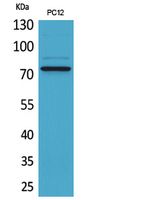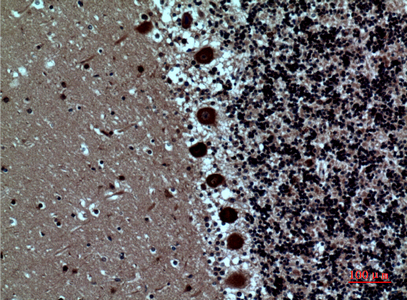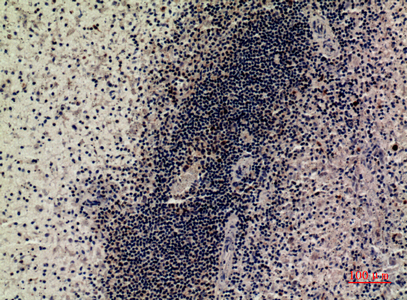产品名称
SAMHD1 Rabbit Polyclonal Antibody
别名
SAMHD1; MOP5; SAM domain and HD domain-containing protein 1; Dendritic cell-derived IFNG-induced protein; DCIP; Monocyte protein 5; MOP-5
蛋白名称
SAM domain and HD domain-containing protein 1
存储缓冲液
Liquid in PBS containing 50% glycerol, 0.5% BSA and 0.02% New type preservative N.
Human Gene Link
http://www.ncbi.nlm.nih.gov/sites/entrez?db=gene&term=25939
Human Swissprot No.
Q9Y3Z3
Human Swissprot Link
http://www.uniprot.org/uniprotkb/Q9Y3Z3/entry
Mouse Gene Link
http://www.ncbi.nlm.nih.gov/sites/entrez?db=gene&term=56045
Mouse Swissprot No.
Q60710
Mouse Swissprot Link
http://www.uniprot.org/uniprot/Q60710
免疫原
The antiserum was produced against synthesized peptide derived from the Internal region of human SAMHD1. AA range:431-480
特异性
SAMHD1 Polyclonal Antibody detects endogenous levels of SAMHD1 protein.
宿主
Polyclonal, Rabbit,IgG
背景介绍
SAM and HD domain containing deoxynucleoside triphosphate triphosphohydrolase 1(SAMHD1) Homo sapiens This gene may play a role in regulation of the innate immune response. The encoded protein is upregulated in response to viral infection and may be involved in mediation of tumor necrosis factor-alpha proinflammatory responses. Mutations in this gene have been associated with Aicardi-Goutieres syndrome. [provided by RefSeq, Mar 2010],
组织表达
Expressed in heart, skeletal muscle, spleen, liver, small intestine, placenta, lung and peripheral blood leukocytes (PubMed:11064105). No expression is seen in brain and thymus (PubMed:11064105).
细胞定位
Nucleus . Chromosome . Localizes to sites of DNA double-strand breaks in response to DNA damage. .
功能
function:May play a role in mediating proinflammatory responses to TNF-alpha signaling.,induction:By interferon gamma. Up-regulated in TNF-alpha treated lung fibroblasts.,similarity:Contains 1 HD domain.,similarity:Contains 1 SAM (sterile alpha motif) domain.,tissue specificity:Expressed in heart, skeletal muscle, spleen, liver, small intestine, placenta, lung and peripheral blood leukocytes. No expression is seen in brain and thymus.,
纯化
The antibody was affinity-purified from rabbit antiserum by affinity-chromatography using epitope-specific immunogen.



.jpg)
.jpg)
